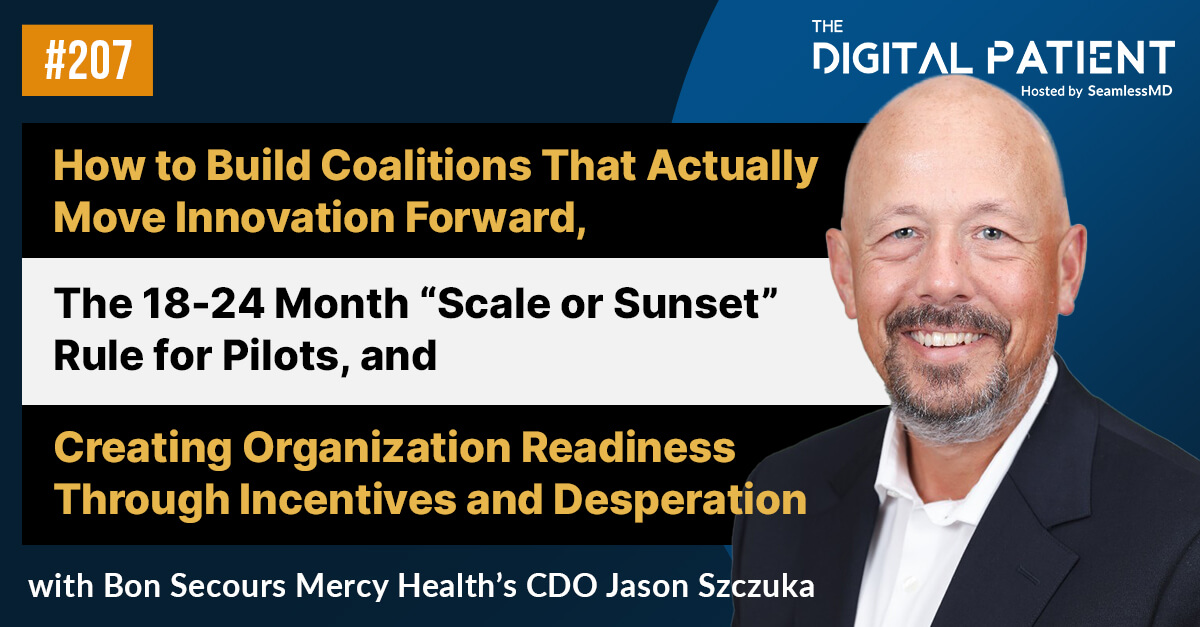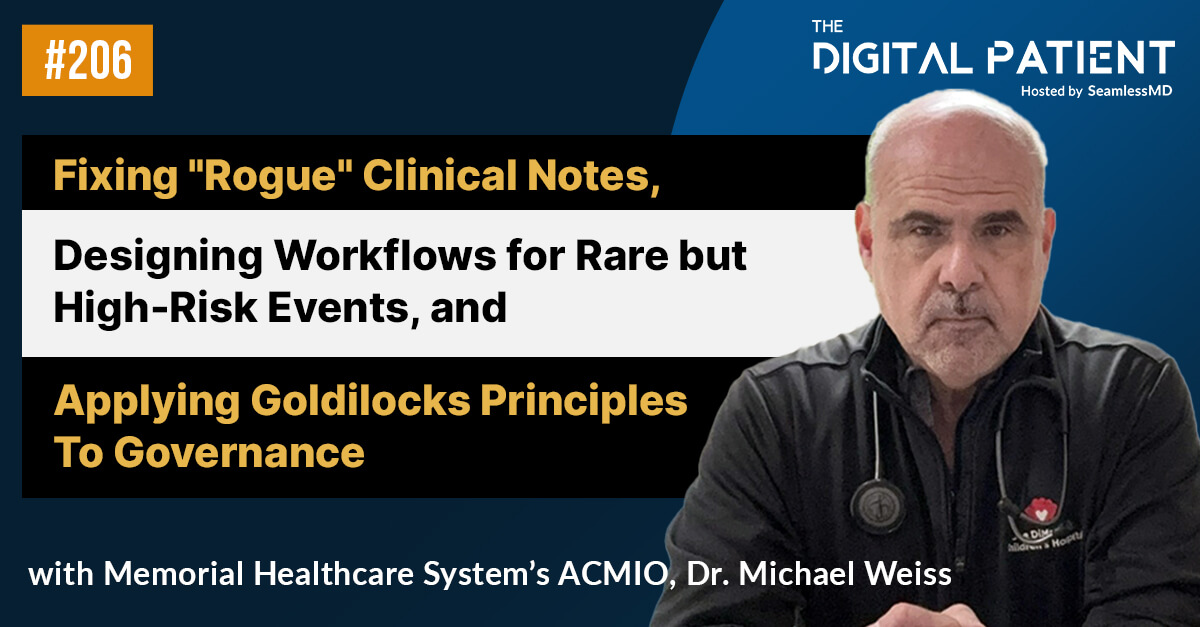Subscribe on: RSS | SPOTIFY | APPLE PODCAST | GOOGLE | BREAKER | ANCHOR
Video:
In this episode of the SeamlessMD Podcast, Dr. Joshua Liu, Co-founder & CEO at SeamlessMD, and marketing colleague, Alan Sardana, chat with Dr. Jehangir Appoo, MD, FACS, on his journey transitioning from Cardiac Surgeon to Venture Capital Investor and the future of virtual care. See the full show notes below for details.
Guest(s): Dr. Jehangir Appoo (@jehangirappoo), MD, FACS, Managing Partner at AIoT Health
Dr. Joshua Liu (@joshuapliu), Co-founder & CEO at SeamlessMD
Episode 10 – Show notes:
[03:21] How Dr. Appoo met Dr. Liu through investor, entrepreneur and physician, Dr. Ray Muzyka;
[03:55] Dr. Liu’s side story about why he promotes the double opt-in method for connecting two contacts;
[05:10] Dr. Appoo on why double-opt in and explaining why something is worth your time is necessary to cut through the information clutter all around us;
[06:50] Why Dr. Appoo became a cardiac surgeon, for impact, the satisfaction of overcoming challenges, and for its technical relation to various systems in the body;
[08:22] When Dr. Appoo went on vacation in India and ran into the dean of McGill University Medical School just before starting medical school which reinforced his decision to pursue cardiac surgery;
[09:45] Dr. Appoo’s thoughts on fate and good luck;
[11:06] Why Dr. Appoo left cardiac surgery due to personal health reasons and how he started venture investing;
[12:00] The challenges Dr. Appoo faced around self-identity and the plethora of possibility that opened up once he ventured away from surgery;
[14:25] How Dr. Appoo spent his first few months after leaving surgery reflecting and developing additional skills to pursue investing (the intersection of finance and medicine);
[17:20] How Dr. Appoo had many coffee meetings and eventually met Dr. Chen Fong, radiologist, investor and mentor at Creative Destruction Lab, who convinced Dr. Appoo to join the team as a mentor;
[18:30] Why Dr. Appoo started AIoT Health, investing in companies focused on Healthcare and A.I. and/or the Internet of Things, to better align incentives and focus on impact in healthcare;
[21:31] Why Dr. Appoo is focused on the evolution and development of machine learning in healthcare and why he believes machine learning is the second major technology opportunity since the Internet;
[23:23] Dr. Appoo’s framework for virtual care, specifically with four components:
- Online interface with good security and user interface
- Remote patient monitoring and sensors
- Machine learning and analytics with data
- Patient engagement and patient-reported outcomes
[24:00] How before COVID-19, virtual care was in its infancy (less than 1% of patient <> provider interaction was virtual) and how virtual care going forward is going to exist more prevalently and why it’s great for patients and their families;
[25:30] How physical exams will change with virtual care, leveraging technology for data-driven predictions and diagnosis, and how physicians will be integral for interpreting and relationship-building with patients;
[27:05] How nano-technology and 3D printing is cool but why digital patient engagement can take things that we already know and make it better by removing friction preventing patient adherence;
[28:57] How patients and physicians are getting used to digital patient engagement and why Dr. Appoo believes patients’ first visits will be in person and follow-ups will be done virtually;
[30:20] How patients and families benefit from virtual care by making it easier for all parties to connect;
[31:00] How new problems will arise due to the democratization of care brought on by virtual care;
[34:00] How Dr. Appoo learned about the concentration of power that exists within technology from Ajar Agarwal, co-founder of Creative Destruction Lab;
[35:30] How public perception of error caused by humans vs computers is very different, yet why it makes sense to favor technology for its lower error percentage when you view it at scale;
[37:37] How inter-physician variability leads to poor outcomes and how technology can decrease the variability;
[39:43] Why Dr. Appoo would not force advise on physicians for how to adapt to a machine-learning environment due to a misalignment in current incentive models;
[40:43] How progress and resistance to change has always been around in medicine and it’s up to us to adapt e.g. when drugs first became available for tuberculosis, thoracic surgeons were threatened since it could be treated with medication alone, so they adapted to take on cancer in the lungs, the heart, the esophagus, etc.;
[41:25] Why Dr. Appoo advises physicians to figure out how you want to adopt the technology, watch the coming trends, and figure out how you can make an impact;
[41:43] Dr. Appoo shares Dr. Eric Topol’s view on the future of radiologists being more involved in discussing the results of the scan, showing the scans to patients, and being more involved in what happens next for their care;
[43:43] Why Dr. Appoo thinks chatbots in medicine are still very early and would not replace the role of a physician but may be beneficial in the future as a patients’ health coach;
[48:30] Why Dr. Appoo is impressed with the various technologies in the mental health space, such as sentiment analysis;
[49:50] How Dr. Appoo views business as a science and how business principles applied to medicine would improve efficiencies;
[51:20] How a physicians’ compounding knowledge, meaningful relationships, and decision-making quality transfer well to business;
[52:16] Why Dr. Appoo focuses on meaningful relationships and modifies the axiom “your network is your net worth” to “your network that is willing to help you, is your net worth”;
[54:50] Dr. Appoo recounting a time 25 years ago when a colleague saw him in the call room reading the stock pages; and
[56:00] Fast 5 / Lightning Round Questions:
Q: What is your favourite podcast?
A: Categorized:
- On mental models:
- Shane Parrish’s Knowledge Network
- On Medicine:
- Peter Attia’s The Drive
- On Investing:
- Patrick O'Shaughnessy’s Invest like the best
- On VC & Startup world:
- Mike Maple’s Starting Greatness
- Overall:
- Neil Pasricha’s 3 books
- Newest Favourite:
- Joshua Liu and Alan Sardana’s SeamlessMD Podcast
Q: Advice you would give yourself 5 years ago?
A: No advice because everything was necessary at the time
Q: What new hobbies/activities/skills have you picked up since COVID-19?
A: Zoom meetings with parents, running with kids, walking with family in the mountains
.svg)









.png)
